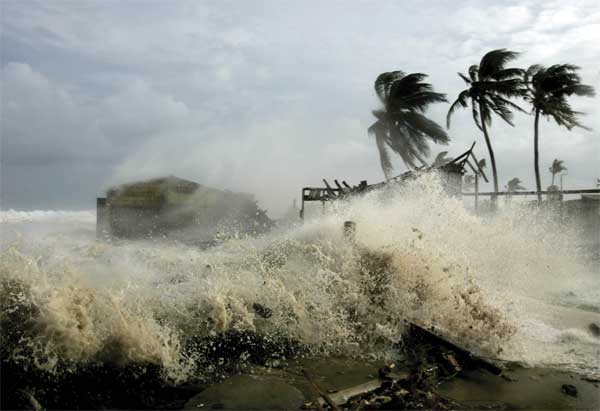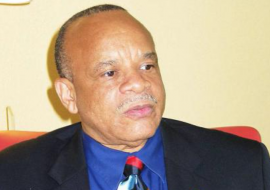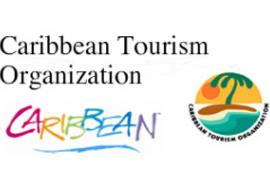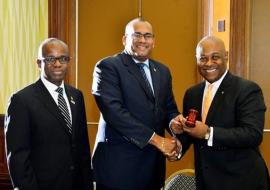Natural Disasters Could Threaten Tourism, Warns CTO

Caribbean tourism destinations have been advised that it is better to avoid or minimize the loss of life, livelihoods, property, economic decline and negative fallout by developing their institutional capacity and management systems for disaster risk management and climate change adaptation.
This advice came from Gail Henry, Sustainable Tourism Product Specialist for the Caribbean Tourism Organization (CTO) as she addressed the opening ceremony of the First Regional Meeting on Regional Monitoring and Evaluation System for Disaster Risk Management (DRM) and Climate Change Adaptation (CCA) in the Tourism Sector in the Caribbean.
“The Caribbean Tourism Organization views the expanded focus of this phase of the DRM CCA project as both important and timely because the region is already experiencing effects such as warmer temperatures, unusual precipitation and biodiversity loss,” Henry told attendees at the event sponsored by the Inter-American Development Bank (IDB) and Caribbean Disaster and Emergency Management Agency (CDEMA).
The native of Trinidad and Tobago reminded those gathered at the conference that when tourists travelled their decision to visit a destination was not only made based on the cost of airfare, accommodation and goods or services in the destination, product offerings, for example, sun-sea-sand, climate, nature, culture, heritage, activities, events), proximity to the home country, ability to travel or just plain curiosity, but that safety and security would be a factor in the decision-making process.
“Would potential travelers willingly travel to a destination that is not perceived to be safe and secure? Would they travel during the hurricane season? Would they travel to a destination that has been recently ravaged by a natural disaster? What assurance can we give them that our destination is prepared to competently handle the occurrence of natural hazards and to expedite recovery in the aftermath.
“What will happen if we lose the very assets that we market due to warmer temperatures, extreme events such as flooding and severe drought, hurricanes, storm surge? These are considerations that tourism agencies have to factor into how they plan and manage sustainable tourism development in this not business as usual environment,” she stressed.
Henry pointed out that when there is a natural disaster, tourist destinations can experience: declines in tourist arrivals, tourism revenue, business revenue; business closure and job losses due to lower visitor spend, resulting in economic slowdown.
She added that the decrease in disposable income of locals leading to multiplier effects in the affected areas which cause more businesses to decline. While on the other hand, there would need to be increases in government spending due to lower tax revenue, combined with providing recovery-related aid.
“Is it not better to avoid or minimize the loss of life, livelihoods, property, economic decline and negative images of Caribbean destinations by developing their institutional capacity and management systems for DRM and CCA than to face the fallout of such negative impacts?
“We have all heard or witnessed first-hand what tsunamis, hurricanes, earthquakes, volcanic activity and severe flooding can do not just to the tourism industry, but in terms of socio-economic development, in the Caribbean and beyond – USA, Mexico, Chile, New Zealand, Australia, Japan, Thailand, Indonesia, India etc. In fact, many destinations such as New Orleans and Port-au-Prince have extended periods of recovery while some never fully recover,” Henry added.
She said the CTO believed there was a need to not only put the necessary disaster risk management and climate change adaptation strategies and systems in place but equally critically to develop the Caribbean’s capacity to execute them.
While noting that the CTO was heartened that the donor and international development agencies in the region have been increasing their support for regional capacity-building, she suggested that perhaps the time had come for the development of a sustainable financing mechanism and continuous capacity building within the region itself.
She added the CTO also saw the need for regional and national level agencies to develop stronger relationships not just with each other but with the donor community and tertiary level institutions such as the University of the West Indies.
“Working collaboratively in a coordinated and strategic manner is how we envision that the gap between scientific research, policy making and developing practical tools and systems to address disaster risk management and climate change adaptation can be closed. The Caribbean Tourism Organization looks forward to continuing to support efforts such as this project which seeks to strengthen the Caribbean tourism industry’s resilience to the effects of climate change and natural hazards and to create a truly sustainable tourism industry,” she said.














